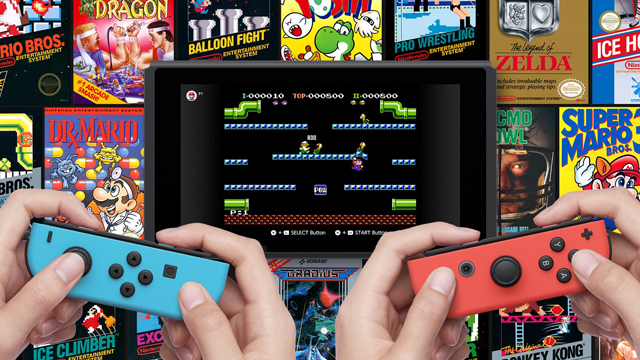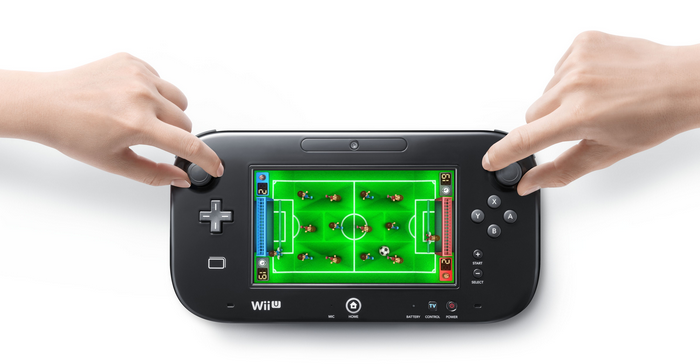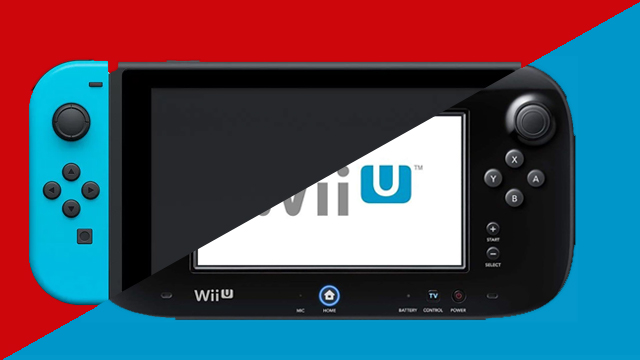I love the Nintendo Switch. How could you not? Whether you play at home or on the go, it finally allows me to unite my gaming experiences. It’s just as those early trailers showcased; I can stroll in from traveling, playing games on the bus or while sitting in an airport, slap my Switch in its dock, charge it up, and start playing games on the TV. That’s genius, and it works as well as Nintendo promised it would. Thank you, Nintendo.
But that certainly doesn’t mean the Nintendo Switch is flawless. I’m not a big fan of the analog sticks on the JoyCon. The battery life could be better. The internal storage is a bit light. It could perhaps use a little bit more power to run those multiplatform ports a bit more smoothly, too — looking at you, DOOM and Wolfenstein II.
Thankfully, Nintendo has a tradition of redesigns and re-releases of its handheld consoles. Whether it’s the original Game Boy, Game Boy Advance or Nintendo DS and 3DS, there are multiple iterations of every handheld system Nintendo has released, with many of them improving in small — and sometimes major — ways over the original. It’s a cycle Nintendo has kept up with reliably, and now, nearly two years on from the release of the Nintendo Switch, rumors are swirling of a Switch redesign coming just on the horizon.
The only problem is, unlike its past handheld systems, Nintendo just may have drastically limited its ability to redesign its incredibly successful console. There’s a list of things the company could fix or improve with a Switch redesign, but no matter what changes are made, it’s going to cause complications, the kind that heralded the downfall of the Wii U.
The Big Switch

The first problem with redesigning the Nintendo Switch are the JoyCon controllers. The JoyCon are a work of genius. They essentially combine all of the functionality and versatility of the Wii remote controller, with a layout more comparable to established, traditional console controllers. They allow for new ways to play games with HD Rumble and motion controls, without sacrificing the functionality of typical controllers. That’s great. But they need to fit on the sides of the console.
Picture a smaller Nintendo Switch. Are they going to make it so the current JoyCon are taller than the system itself? What about a larger system; is that going to have two tiny JoyCon attached to the sides? Changing the height of the system seems like a massive mistake, unless Nintendo wants to release either an ill-fitting console or entirely new size JoyCon.
The Wii U failed and floundered for a lot of reasons, and Nintendo must be careful to avoid making the same mistakes. Offering two SKUs, a variety of controllers and a confusing marketing campaign made the Wii U either too unattractive or too obtuse for the casual audience, and even more hardcore gamers, to get behind. If Nintendo decides to release JoyCon revisions or a console that doesn’t have detachable controllers, the confusion over compatibility will begin. Do they make it easier to play? Are they compatible? What does it mean that they only work properly in Tabletop or Docked mode? What is a JoyCon Controller Grip, and how does it differ from the Charge Grip?
But of course, Nintendo could make changes to the console without changing its size or functionality with existing accessories. More power, better battery life, larger internal storage or a higher resolution screen: all of this is perfectly possible without having to completely abandon the current dimensions of the console. But just like a Premium or Deluxe version of a Wii U, the second SKU is going to baffle those consumers who aren’t as familiar with the console already.
Alien technology

Put yourself in the shoes of a parent unfamiliar with the Nintendo Switch buying a gift for Christmas. There are two consoles available, they look the same, but the store clerk in GameStop is explaining the differences between the two. One is more expensive, slightly better, but the reasons why are unclear. What exactly is a “higher resolution?” Is that necessary? Certain games will have more stable framerates. Does that mean my daughter will enjoy playing Pokemon Let’s Go more?
The confusion will be real, and it’ll harken back to the days of the Wii U all over again. Anyone who worked in games retail and had to explain the Wii U to the general public will already know how problematic its marketing was. People assuming the Wii U GamePad was a new controller for the Wii was a real issue, and multiple controllers and accessories required for a very limited number of games only made the issue more severe.
It’s obvious what advantages the 3DS XL has over the 3DS. It’s clear why the Game Boy Color is better than the Game Boy. Will a Nintendo Switch redesign be both an obvious upgrade to the layman, while still managing to please anyone who has invested their money in existing Switch accessories and peripherals? Honestly, it’s a tough line to dance, and as of right now, it seems somewhat unlikely.
Only Nintendo knows what the future holds, but one thing is clear: it needs to be cautious in the handling of its Switch redesign, or we might see history repeat itself.











